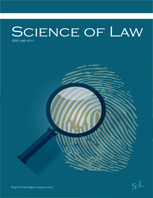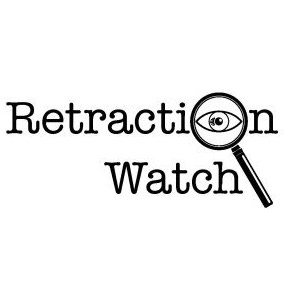Elsevier has removed a journal from its Scopus database after Retraction Watch inquired about its review process for the journal, whose editorial board lists fake names and digital fingerprint shows other red flags. Scientific sleuth Anna Abalkina uncovered several issues with Science of Law, which she details in a post published today. Besides editors and editorial board members who cannot be verified and don’t seem to exist, the journal’s history doesn’t match its publication record, early articles show signs of fabrication, and its publisher data in Scopus doesn’t match that in Crossref. Despite this, Scopus added the journal to its…
-
-
Picture this: it’s April 2020, you’re between Zoom meetings, and scrolling through your social media newsfeed. Headlines like “Death toll continues to rise”, “COVID-19 may cause long-term health implications” and “Health-care systems overwhelmed” flash across your screen. Your mood takes a dive, but you can’t stop scrolling. If this scenario rings true for you, you’re not alone. Research shows people have a tendency to seek out information during uncertain times – it’s a natural coping mechanism. But is persistent information-seeking on social media, sometimes called doomscrolling, helpful during a pandemic, or any time? Research on the effects of bad news…
-
It’s my pleasure to welcome Betsy Mason as the newest person of LWON. Betsy is an award-winning freelance science journalist based in the San Francisco Bay Area. She was a senior editor at Wired for many years, and she has won a lot of accolades, including the American Geophysical Union’s David Perlman award for breaking news. She’s also been an Alicia Patterson Foundation fellow and a Knight Science Journalism Fellow at MIT. You can read her full bio here. I’m not even sure anymore when or where I first met Betsy, it feels like we’ve been friends forever. She is…
-
A new study uses metabolic profiling to uncover ancient knowledge systems behind therapeutic and psychoactive plant use in ancient Arabia. New research published in Communications Biology has uncovered the earliest known use of the medicinal and psychoactive plant Peganum harmala, commonly known as Syrian rue or harmal, in fumigation practices and inhaled as smoke. The findings offer unprecedented insight into early Arabian therapeutic and sensorial practices, revealing that native plants were already being deliberately used for their bioactive and psychoactive properties nearly 2,700 years ago. Led by Dr. Barbara Huber (Max Planck Institute of Geoanthropology) and Professor Marta Luciani (University…
-
I have a review of John Bargh’s new book “Before You Know It: The Unconscious Reasons We Do What We Do” in this month’s Psychologist magazine. You can read the review in print (or online here) but the magazine could only fit in 250 words, and I originally wrote closer to 700. I’ll put the full, unedited, review below at the end of this post. John Bargh is one of the world’s most celebrated social psychologists, and has made his name with creative experiments supposedly demonstrating the nature of our unconscious minds. His work, and style of work, has been…
-
Editor’s note: We asked Elsevier to respond to some of the findings in this post. In response, a spokesperson told us they will now remove the journal from Scopus. See Elsevier’s response in this story. I received a letter recently pointing me to a questionable journal indexed in Elsevier’s Scopus database. Scopus indexes many problematic and even hijacked journals, but this case is the most outrageous I have seen to date. Scopus indexed Science of Law in July 2024. According to its profile in the database, the journal is published by the “Editorial Team of SoL.” However, “the editorial team”…
-
Sudden oak death, caused by the pathogen Phythophthora ramorum, is one of the most ecologically devastating forest diseases in North America, responsible for the deaths of millions of oaks and tanoaks along the coast. Science to the rescue? After the success of genetically modified organisms in things like insulin and food, a recent trend is Genetically Rescued Organisms. These GROs would use science to create natural resistance, like a vaccine for plants, and reduce the impact of altered species composition, released carbon pools, and greater fire risk the deaths bring. Before that can happen, scientists need to better understand the basic biology of Phythophthora ramorum, including how…
-
Where did the moon’s magnetism go? Scientists have puzzled over this question for decades, ever since orbiting spacecraft picked up signs of a high magnetic field in lunar surface rocks. The moon itself has no inherent magnetism today. Now, MIT scientists may have solved the mystery. They propose that a combination of an ancient, weak magnetic field and a large, plasma-generating impact may have temporarily created a strong magnetic field, concentrated on the far side of the moon. In a study appearing in the journal Science Advances, the researchers show through detailed simulations that an impact, such as from a…
-
I have a guest post for the Research Digest, snappily titled ‘People who think their opinions are superior to others are most prone to overestimating their relevant knowledge and ignoring chances to learn more‘. The paper I review is about the so-called “belief superiority” effect, which is defined by thinking that your views are better than other people’s (i.e. not just that you are right, but that other people are wrong). The finding that people who have belief superiority are more likely to overestimate their knowledge is a twist on the famous Dunning-Kruger phenomenon, but showing that it isn’t just…
-
Dear RW readers, can you spare $25? The week at Retraction Watch featured: Our list of retracted or withdrawn COVID-19 papers is up past 500. There are more than 59,000 retractions in The Retraction Watch Database — which is now part of Crossref. The Retraction Watch Hijacked Journal Checker now contains more than 300 titles. And have you seen our leaderboard of authors with the most retractions lately — or our list of top 10 most highly cited retracted papers? What about The Retraction Watch Mass Resignations List — or our list of nearly 100 papers with evidence they were…







